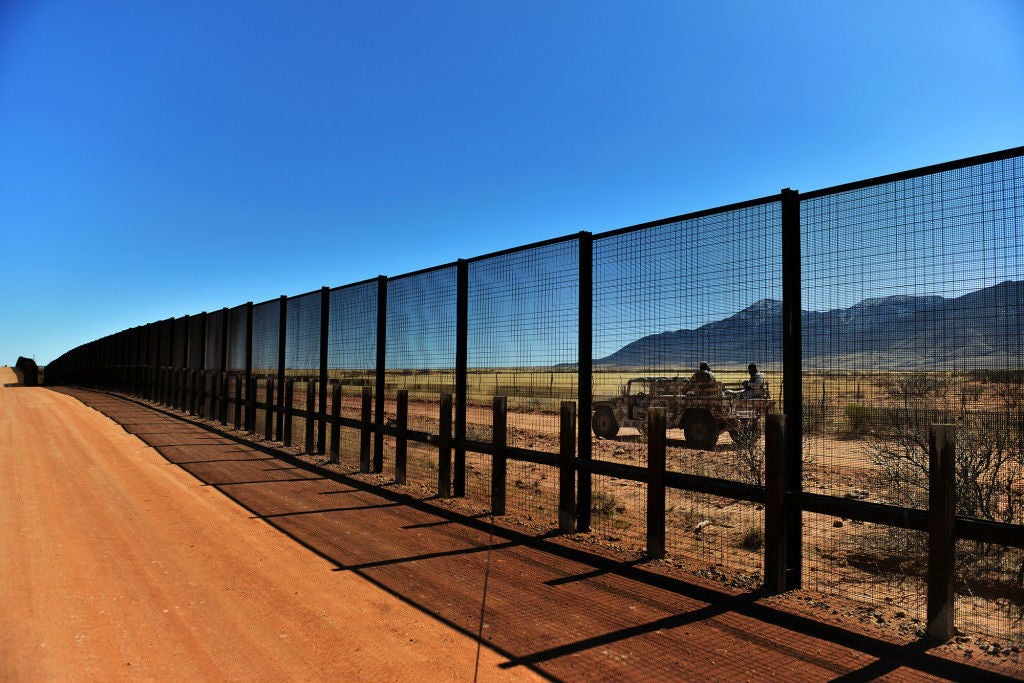More Mexicans are leaving the US than arriving, new report says
It is the first time in more four decades that the US has suffered a net loss

Your support helps us to tell the story
From reproductive rights to climate change to Big Tech, The Independent is on the ground when the story is developing. Whether it's investigating the financials of Elon Musk's pro-Trump PAC or producing our latest documentary, 'The A Word', which shines a light on the American women fighting for reproductive rights, we know how important it is to parse out the facts from the messaging.
At such a critical moment in US history, we need reporters on the ground. Your donation allows us to keep sending journalists to speak to both sides of the story.
The Independent is trusted by Americans across the entire political spectrum. And unlike many other quality news outlets, we choose not to lock Americans out of our reporting and analysis with paywalls. We believe quality journalism should be available to everyone, paid for by those who can afford it.
Your support makes all the difference.It is not the sort of news you would learn by listening to many of the leading US politicians.
But for the first time in more than four decades, more Mexicans are leaving the US than entering the country.
From 2009 to 2014, an estimated 870,000 Mexicans came to the United States while 1m returned home, a net loss for the US of 130,000, according to the report from the Pew Research Centre.

That demographic shift comes at a time when immigration has become a bitter and often toxic issue in the 2016 presidential race, leading Republicans such as Donald Trump saying he wants to build a wall across the US’s southern and deport illegal migrants.
The report said most of the Mexican leaving the US were doing so voluntarily to reunite with their family or else to start one. But strikingly, an increasing number of Mexicans interviewed for the study said that life north of the border was no better or worse than in Mexico itself.
The overall flow of Mexican immigrants between the two countries is at its smallest since the 1990s, Pew said.
The findings follow Mr Trump's call for mass deportation of undocumented immigrants, a plan President Barack Obama has said is too costly and un-American.
More than 16m Mexican immigrants have migrated to the United States in the last 50 years, more than from any other country. From fewer than 1m living in the United States in 1970, the number of Mexican immigrants peaked at 12.8m by 2007. The total declined to 11.7m last year.
The drop is mostly due to a decrease of more than 1m unauthorised immigrants from a peak of 6.9m in 2007 to 5.6m in 2014, Pew said. Still, unauthorised immigrants from Mexico account for about half of all US unauthorised immigrants.
The decline in the flow of Mexican immigrants to the US is due to several reasons, the report said. The slow recovery of the economy after the recession may have made the US less attractive to potential Mexican migrants and may have pushed out some Mexican immigrants as the job market deteriorated.

In addition, stricter enforcement of US immigration laws, particularly at the US-Mexico border may have contributed to the reduction of Mexican immigrants arriving.
“This is the first time that we have the actual evidence and numbers of people going back,” she said, said Ana Gonzalez-Barrera, a research associate who wrote the report.
Mark Hugo Lopez, director of Hispanic research at the Pew Research Centre, said he did not know know how much of an impact the Pew findings will have in this presidential race.
“But certainly this is a topic area that the candidates have been talking about,” he said.
Join our commenting forum
Join thought-provoking conversations, follow other Independent readers and see their replies
Comments